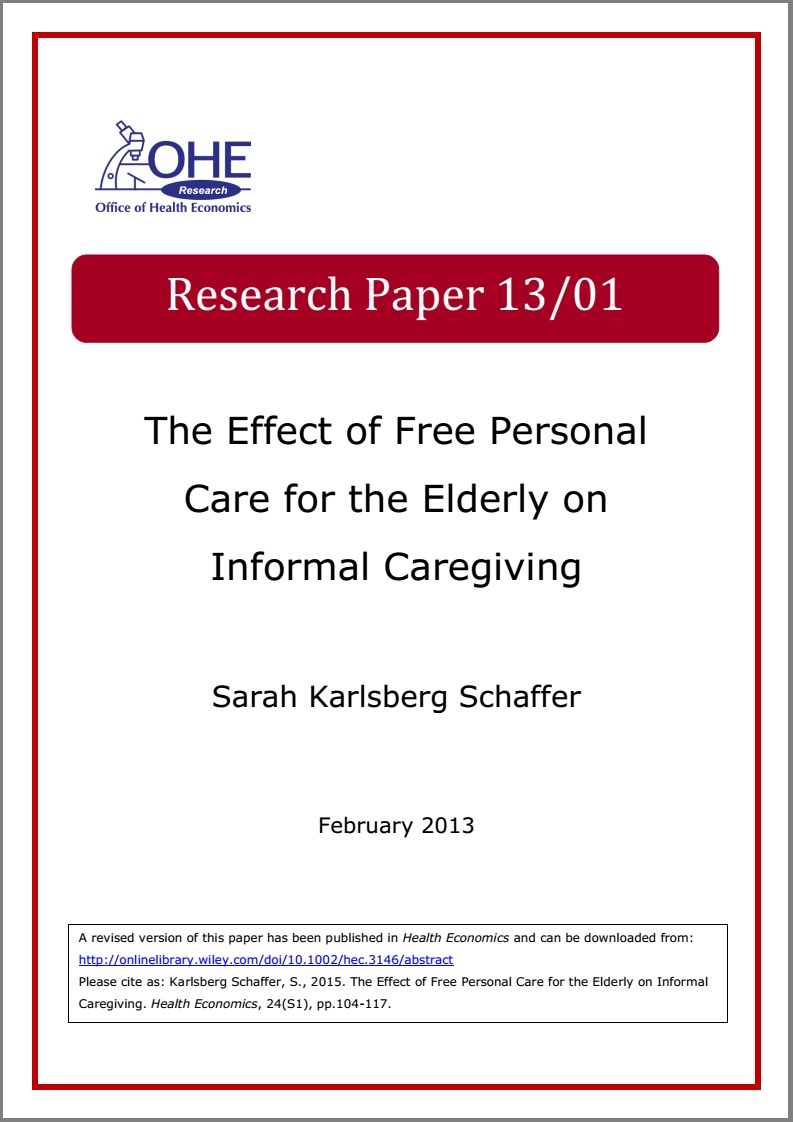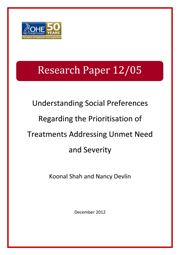Sign up to our newsletter Subscribe
The Effect of Free Personal Care for the Elderly on Informal Caregiving

Sign up to our newsletter Subscribe

A pilot study demonstrated the value of involving a range of stakeholders in MCDA for rare disease therapies.
According to a study just published by the Office of Health Economics (OHE) and its collaborators, medicines for rare disease may be effectively valued using an innovative approach — multi-criteria decision analysis (MCDA) — that can include all relevant stakeholders, including patients’ groups. Assessing value for treatments of rare diseases has long been a challenge.
According to a study just published[1] by the Office of Health Economics (OHE) and its collaborators, medicines for rare disease may be effectively valued using an innovative approach — multi-criteria decision analysis (MCDA) — that can include all relevant stakeholders, including patients’ groups.
Assessing value for treatments of rare diseases has long been a challenge. The small number of patients affected by each disease make it markedly more time consuming and expensive to compile evidence of treatment effects for rare diseases than for other diseases. Payers recognise that a different approach may be needed to determine reimbursement eligibility and levels for rare disease treatments.
To explore one promising approach, OHE collaborated with GlaxoSmithKline to test the feasibility of using MCDA techniques for valuing medicines for rare disease. The three one-day workshops involved a range of stakeholders, including clinical and health economics experts and representatives of patients’ groups. The objective was to establish and use an explicit framework of decision criteria to value medicines for rare diseases. Participants “weighted” various attributes of the disease and the treatment to reflect the relative importance of each in decisions.
All participants assigned as much weight to attributes of the disease as to attributes of the treatment. Patients’ group representatives, however, gave greater weight than the clinical and health economics experts to the patient’s quality of daily life and less weight to clinical factors.
Jon Sussex, Deputy Director of OHE and lead researcher on the project, emphasised: “This innovative MCDA approach proved very much ‘fit for purpose’. We are confident that it can help health care payers and their advisers capture and consistently make decisions based on what is most important about new treatments for rare diseases.”
[1]Jon Sussex, Pierrick Rollet, Martina Garau, Claude Schmitt, Alastair Kent, Adam Hutchings. (2013) A Pilot study of multi-criteria decision analysis for valuing orphan medicines. Value in Health. doi:10.1016/j.jval.2013.10.002 [An earlier version is available on this website as Research Paper 13/03.]
For a recent presentation by Jon Sussex on the broader issues of evaluating highly specialised technologies, click here.
OHE also has published a comprehensive primer on incorporating MCDA into health technology assessment, available for download by clicking here. For more information, please contact Jon Sussex.
An error has occurred, please try again later.
This website uses cookies so that we can provide you with the best user experience possible. Cookie information is stored in your browser and performs functions such as recognising you when you return to our website and helping our team to understand which sections of the website you find most interesting and useful.
Strictly Necessary Cookie should be enabled at all times so that we can save your preferences for cookie settings.
If you disable this cookie, we will not be able to save your preferences. This means that every time you visit this website you will need to enable or disable cookies again.
This website uses Google Analytics to collect anonymous information such as the number of visitors to the site, and the most popular pages.
Keeping this cookie enabled helps us to improve our website.
Please enable Strictly Necessary Cookies first so that we can save your preferences!